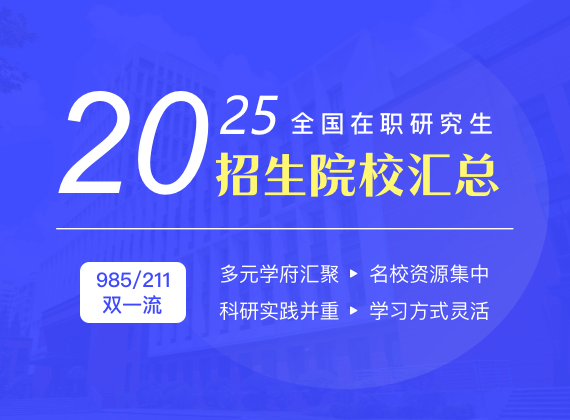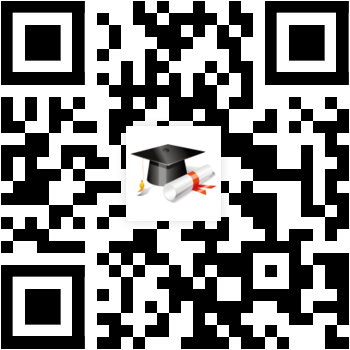2009年GCT英语模拟试题练习03
来源:在职研究生招生信息网 发布时间:2011-10-24 14:41:20
Part One Vocabulary and Structure
Directions:
In this part there are 10 incomplete sentences, each with four suggested answers. Choose the one you think is the best answer. Mark your choice on the Answer Sheet by drawing with a pencil a short bar across the corresponding letter in the brackets.
1. What _________ the doctor most was that he could not find the cause of the disease.
A. astonished
B. amazed
C. surprised
D. puzzled
2. I was earning barely enough to keep body and ________ together.
A. heart
B. soul
C. mind
D. mentality
3. The excessive smoking and drinking seriously ________ his lungs.
A. affected
B. worried
C. effected
D. influenced
4. In those African countries the exports are mainly _________ materials, such as timbers and minerals.
A. raw
B. crude
C. fresh
D. original
5. Near the scene of the crime , the police arrested two men whose behavior appeared _______.
A. ambitious
B. anxious
C. suspicious
D. notorious
6. It was so unbelievable that he should have stolen the money _________ the suggestion was made that he might have been threatened.
A. which
B. what
C. that
D. although
7. The number of registered participants in this year’s long-distance race was half _________ last year’s.
A. of
B. of those of
C. those
D. that of
8. I’ll inform you as soon as I _________ the news.
A. am getting
B. get
C. will get
D. shall get
9. This is a primary requirement that all motor cars _________ tested regularly for the sake of safety and efficiency.
A. must be
B. will be
C. be
D. are
10. Wood does not conduct electricity, _________
A. so doesn’t rubber
B. nor does rubber
C. neither doesn’t rubber
D. nor rubber does:
Part Two Reading Comprehension
Directions:
In this part there are 4 passages followed by questions or unfinished statements, each with four suggested answers. Choose the one you think is the best answer. Mark your choice on the Answer Sheet by drawing with a pencil a short bar across the corresponding letter in the brackets.
Questions 11-15 are based on the following passage:
If you are like most people, your intelligence varies from season to season. You are probably a lot sharper in the spring than you are at any other time of the year. A noted scientist, Ellsworth Huntington (1876-1937), concluded from other men’s work and his own among peoples in different climates that climate and temperature have a definite effect on our mental abilities.
He found that cool weather is much more favorable for creative thinking than is summer heat. This does not mean that all people are less intelligent in the summer than they are during the rest of the year. It does mean, however, that the mental abilities of large numbers of people tend to be lowest in the summer.
Spring appears to be the best period of the year for thinking. One reason may be that in the spring man’s mental abilities are affected by the same factors that bring about great changes in all nature.
Fall is the next-best season, then winter. As for summer, it seems to be a good time to take a long vacation from thinking!
11. Huntington based his conclusions on ___________.
A. records of change in his own intelligence
B. work with peoples in different climates
C. records of temperature changes
D. all of the above
12. Ellsworth Huntington decided that climate and temperature have _________.
A. a great effect on everyone’s intelligence
B. some effect on most people’s intelligence
C. effect on only a few people’s intelligence
D. no effect on people’s intelligence
13. One possible reason why spring is the best season for thinking is that ___________.
A. there are some things making all nature different from before
B. it lasts longer than the other seasons
C. it is neither too warm nor too cold
D. it is more natural for the development of mental abilities
14. The two best seasons for thinking seem to be _____________.
A. spring and fall
B. winter and summer
C. summer and spring
D. fall and winter
15. According to the selection, vacations from thinking should be taken ___________.
A. several times throughout the year
B. during spring and fall
C. during the summer
D. as seldom as possible
Questions 16-20 are based on the following passage:
The potential of closed circuit television and other new electronic teaching tools is so great that it is inspiring to imagine “The school of tomorrow”. Televised lessons will be given in a central building having perhaps four or five master studios. The lessons will be carried into classrooms all over a city, or even an entire country. After a televised lesson has been given, the classroom teacher will take over for the all important “follow-up” period. The students will ask troublesome questions and difficult points will be cleared up through discussion.
The teacher in the class will have additional electronic tools. On the teacher’s desk, the traditional bright red apple will have been replaced by a multiple-control panel and magnetic tape players. The tape machines will run pre-recorded lessons which pupils will follow by head phones. The lessons will be specifically connected closely to the students’levels of ability. For instance, while the class as a whole studies history, each student will receive an individual history lesson directed to his particular level of ability.
Should questions arise, the students will be able to talk directly to the teacher on individual “intercom ” without disturbing the rest of the class. In this way, the teacher will be able to conduct as many as three classes at the same time.
16. Closed-circuit television will probably carry lesson into _______________.
A. a single classroom in the world
B. all the classrooms in the world
C. all the classrooms in a city or a country
D. a single classroom in a city or a country
17. After the televised lesson _____________.
A. the students will go to their next class
B. the classroom teacher will take over
C. the students will ask questions
D. both B and C
18. In the schools of tomorrow, the teacher’s desk will _______________.
A. contain electronic equipment
B. actually be a television set
C. no longer exist
D. look like an isolation
19. In the schools of tomorrow, students will ________________.
A. all study different subjects at the same time
B. study at different levels within a subject at the same time
C. not study
D. not have to read books
20. Electronic tools will enable the teacher to _________________.
A. teach more than one class at the same time
B. teach many different subjects at the same time
C. teach only a small number of pupils
D. rely on TV station only
Questions21-26 are based on the following passage:
Sequoyah was a young Cherokee Indian, son of a white trader and an Indian woman. At an early age, he became fascinated by “the talking leaf,” an expression that he used to describe the white man’s written records. Although many believe this “talking leaf’ to be a gift from the Great Spirit, Sequoyah refused to accept that theory. Like other Indians of the period, he was illiterate, but his determination to remedy the situation led to the invention of a unique 86-character alphabet based on the sound patterns that he heard. His family and friends thought him mad, but while recovering from a hunting accident, he diligently and independently set out to create a form of communication for his own people as well as for other Indians. In 1821, after twelve years of work, he had successfully developed a written language that would enable thousands of Indians to read and write.
Sequoyah’s desire to preserve words and events for later generation has caused him to be remembered among the important inventors. The giant redwood trees of California, called “sequoias” in his honor, will further imprint his name in history.
21. What is the most important reason that Sequoyah will be remembered?
A. California redwoods were named in his honor.
B. He was illiterate.
C. He created a unique alphabet.
D. He recovered from his madness and helped mankind.
22. How did Sequoyah’ s family react to his idea of developing his own “talking leaf”?
A. They arranged for his hunting accident.
B. They thought he was crazy.
C. They decided to help him.
D. They asked him to teach them to read and write.
23. What prompted Sequoyah to develop his alphabet?
A. People were writing things about him that he couldn’t t read.
B. He wanted to become famous.
C. After his hunting accident, he needed something to keep him busy.
D. Future generations.
24. How would you describe Sequoyah?
A. Determined.
B. Mad.
C. Backward.
D. Meek/obedient
25. Which of the following is not true?
A. Sequoyah developed a form of writing with the help of the Cherokee tribe.
B. Sequoyah was a very observant young man.
C. Sequoyah spent twelve years developing his alphabet.
D. Sequoyah was honored by having some trees named after him.
Questions 26-30 are based on the following passage:
China has refuted recent United States criticism about its exchange rate policy, restating its principles of independence and responsibility in handling the issue. "On this issue, China has always been independent and highly responsible, on which the international community has long agreed," said a spokesman from SAFE. Speculation that the exchange rate of the Chinese currency, known as RMB, would rise under foreign pressure reduced after US Treasury Secretary John Snow's visit to Beijing earlier this month. He came to press the Chinese Government to revalue the currency. But US Commerce Secretary Donald L. Evans soon stepped up criticism, accusing the country of backsliding on the promises to ease restrictions on foreign companies, remove trade barriers and stop software piracy (盗版).
The SAFE spokesman reiterated that China will continue to maintain the basic stability of the renminbi's exchange rate, which he said has not only helped promote China's reform and opening-up and stimulate domestic demand, but contributed to the fight against the Asian financial crisis.
26. China restated the principles of its exchange rate policy because ___________.
A. it was refused by the United States in the exchange policy
B. it was unfavorably commented by the United States
C. it wants to exchange principles with the United States
D. it was criticized for its independence in administrative policy
27. The international community is _______.
A. against the principle of independence in making exchange rate system
B. for the principle of independence in making exchange rate system
C. responsible for the criticism about the exchange rate policy
D. indifferent to the issue of exchange rate
28. John Snow visited China to ____________.
A. relieve the pressure of Chinese government
B. promote the relationship between China and United States
C. show his appreciation for China’s exchange rate system
D. urge China to increase the exchange rate of RMB
29. Donald L. Evans _____________.
A. was in line with John Snow
B. criticized those who showed disagreement with RMB exchange rate policy
C. happy with the promises made by Chinese government
D. tried his best to help China out of the trouble
30. According to the SAFE spokesman’s words, the stability of RMB’s exchange rate __________.
A. will not be helpful to China’s reform and opening-up
B. will decrease the domestic demand
C. will contribute to Asian financial crisis
D. will be beneficial to China’s economy
Part Three Cloze Test
Directions:
For each blank in the following passage, choose the best answer from the choices given below. Mark your answer on the Answer Sheet by drawing with a pencil a short bar across the corresponding letter in the brackets.
In the United States, the first day nursery was opened in 1854. Nurseries were established in various areas during the first half of the 19th century, most of __31__ were charitable. Both in Europe and in the U. S., the day-nursery movement received great encouragement during the First World War, when __32__ of manpower caused the industrial employment of unprecedented numbers of women. The number of nurseries in the U. S. rose __33__ , which was accomplished without any government aid. During the years following the First World War, __34__ , Federal State, and local governments gradually began to exercise a measure of control __35__ the day nurseries. The __36__ of the Second World War was quickly followed by an increase in the number of day nurseries in almost all countries, as women were again called upon to replace men in the factories. On this __37__ the U.S. government immediately came to the support of the nursery schools, allocating $ 6,000,000 in July, 1942, for a nursery-school program for the children of working mothers. By the end of the war, more than 100,000 children were being cared __38__ in day-care centers receiving Federal __39__ . Soon afterward, the Federal government drastically cut down its expenditures for this purpose and later abolished them, causing a sharp drop in the number of nursery schools in operation. However, the expectation that most employed mothers would leave their __40__ at the end of the war was only partly fulfilled.
31. [A] those [B] them [C] what [D] which
32. [A] sources [B] abundance [C] shortage [D] excess
33. [A] highly [B] sharply [C] predominantly [D] militantly
34. [A] therefore [B] consequently [C] however [D] moreover
35. [A] over [B] in [C] at [D] about
36. [A] end [B] outbreak [C] breakthrough [D] breakdown
37. [A] circumstance [B] occasion [C] case [D] situation
38. [A] by [B] after [C] of [D] for
39. [A] pensions [B] subsidies [C] revenues [D] budgets
40. [A] nurseries [B] homes [C] jobs [D] children
Part Four Dialogue Completion
Directions:
There are 10 short incomplete dialogues, each followed by four choices marked (A), (B), (C) and (D). Choose the answer that appropriately suits the conversational context and best completes the dialogue. Mark your answer on the answer sheet by drawing with a pencil a short bar across the corresponding letter in the brackets.
41.Mother: Do you think little Jimmy can walk by himself that long?
Father: I don’t know, but they have baby carriages for rent at the entrance.
Jimmy: I don’t need a baby carriage. I can walk by myself!
Father: I know you can, ____________________, OK?
A. but just if possible
B. but just if in case
C. but if only
D. but on occasion
42.John: Hi, Anna. ___________________
Anna: Designing a uniform.
John: I didn’t know you are a costume designer.
A. Long time no seeing.
B. I’m looking for you everywhere.
C. What are you on to?
D. What are you up to?
43.Roy: Aren’t you going to swim?
Lisa: The water is too cold, I’m afraid.
Roy: You’re not telling me that we drove fifty miles to come here just for a sunbath, are you?
Lisa: Hey, don’t shout! Now, Roy, we’ve had a lovely day. ______________.
A. Don’t get angry.
B. Don’t spoil it.
C. We should insist it on.
D. We should appreciate it.
44.Sally: Bill said he wanted to have a fight with the boss and then quit the job.
Dora: _____________________ Nowadays it’s hard to find a good job.
A. I don’t think he has the guts.
B. It is very wise for him to do that.
C. I admire people like him.
D. The boss is very stupid.
45.Mrs. Newman: I personally don’t think it’s a good idea to keep a child indoors all day long. Letting the children get close to nature is the best way to take care of them and satisfy their curiosity.
Parent: I agree with that, but safety is important as well.
Mrs. Newman: That you don’t have to worry about. Besides teachers, we have two assistants in each class ____________________.
A. to put their hands to the children
B. to have a look at the children
C. to watch out the children
D. to keep an eye on the children
46.Carl: Sorry I’m late. How is it going?
Allan: Sit down. I saved a seat for you. You’ve missed the most exciting part.
Carl: Really? ____________________
A. What’s the score now?
B. What is the rate now?
C. How many marks are there now?
D. What about the comparison now?
47.Alan: I have an appointment with Mr. Brown.
Receptionist: Mr. Brown is expecting you now. ____________
A. Go this road, please.
B. Follow this direction, please.
C. Come this way, please.
D. Move here, please.
48.Roger: Richard, I got fired this morning. Could you help me?
Richard: How come? Last time I saw you, you told me it was a good job and you would like to take it as a career.
Roger: ________________ In a word, I didn’t do a good job of it. I messed up a business deal that would make several million dollars.
A. I have many words to say.
B. There is much to discuss.
C. It’s a long-time talk.
D. It’s a long story.
49.Mr. Anderson: Congratulations, Mr. Longfellow. It’s a magnificent hotel.
Mr. Longfellow: Thank you. I’ll certainly give you a discount if…
Miss Ellen: Excuse me, Mr. Longfellow. May I have a word with you?
Mr. Longfellow (to Mr. Anderson): ___________
A. I have to leave.
B. Sorry to leave you.
C. Excuse me.
D. Goodbye.
50.Sarah: It is a grand wedding, isn’t it?
David: It sure is. Oh, here comes the bridegroom. ____________________
Bridegroom: Thank you. Enjoy yourself.
A. Glad to see you, Jack.
B. Wish you all good, Jack.
C. Congratulations, Jack.
D. Give you prayers, Jack.
参考答案:
1—10:DBAAC CDBCB
11—20:BBAAC CDABA
21—30:CBCAB BBDAD
31—40:ABAAD CBABC
41—50:CACAB BBDDB
上一篇: 2009年GCT英语模拟试题练习02
下一篇: 2009年GCT英语模拟试题练习04





















